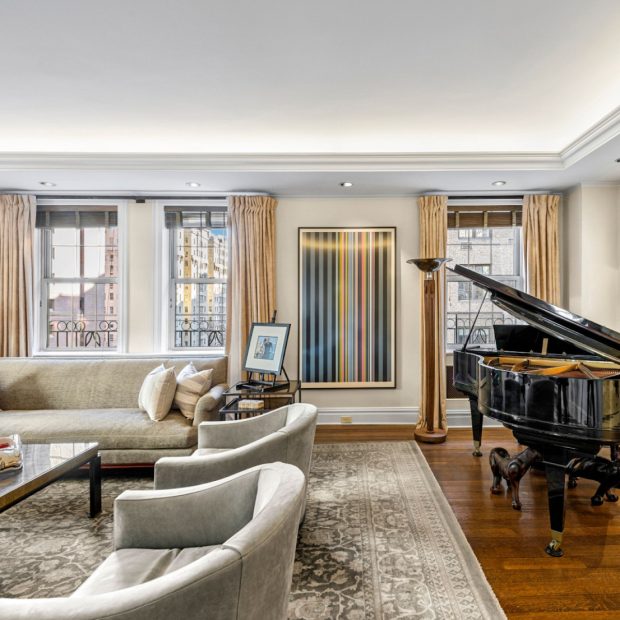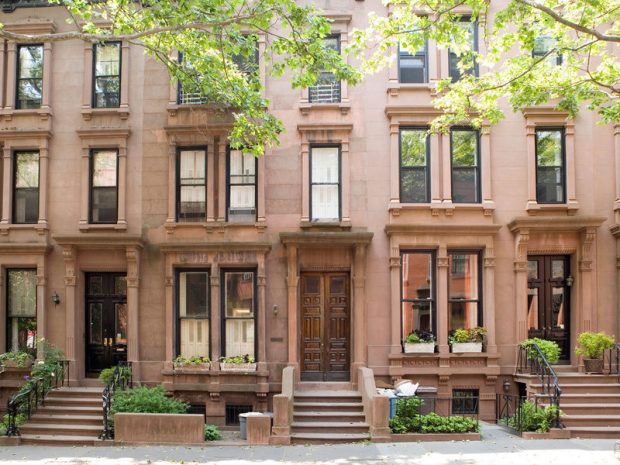
Dormant real estate in Manhattan offers a diverse range in price and style. Comprising approximately 25% condos, 65% co-ops (cooperatives), and 5% townhouses, there are few single-family real estate for sale on the island due to the dense population of Manhattan and its metropolitan style. Whether you’re an investor seeking income from your property purchase or a new resident aspiring to find a permanent home, it’s crucial to understand the types of properties accessible to you.
There are three main types of real estate in Manhattan: co-ops, apartments, and townhomes/brownstones. Co-ops make up 65% of Manhattan’s residential real estate, but their strict ownership and subletting rules often make them not the most attractive option for foreign buyers and investors. Condominiums provide more freedom and makeup about 25% of residential real estate on the Manhattan market. There is also the option of a condominium, which is real estate in a mixed-use building that is managed similarly to a co-op. Townhouses are rare on the market, accounting for approximately 5% at any given time, and are quite expensive.
READ: Investing in Brooklyn Real Estate: Detailed Review
If you’re looking for residential properties in Manhattan, you’ll find a variety of prices and styles to choose from. Condos make up approximately 25% of the market, while co-ops comprise 65% and townhomes 5%.

Co-op apartments in New York City are widespread and mostly consist of older buildings built before 1985. Some of these buildings have prestige and historical value but often lack modern amenities. They are intended for permanent residence, and in the process of purchasing an apartment in a cooperative, the buyer is faced with unique features.
The buyer purchases shares of the company that owns the building, and in return receives the right to lease a specific apartment. Co-ops have strict rules, including:
Condominiums are large tracts of land that are subdivided and offered for sale. Owning a condominium is similar to owning a single-family home in that the owner has many rights and full ownership of the property. All apartment owners jointly own a piece of land and common areas (such as elevators, lobby, fitness center, living room, etc.).
READ: American Dream: The Most Expensive Apartments in New York
Although there is a condominium management board, its primary purpose is to effectively manage the building rather than to impose unnecessarily restrictive rules, as is the case in co-ops. Condominiums in New York are modern building complexes in the city and are the primary choice for foreign buyers, investors, parents buying property for their children, and anyone who wants to live in modern buildings.

Townhouses in New York are buildings similar to detached houses. Unlike apartments and co-ops, the term “townhouse” is not associated with a management style, but rather defines the type of structure. Townhouses occupy a small footprint in the city, but with multiple floors (sometimes six or more), they provide spacious living space.
Creating a realistic list of requirements when purchasing a property is an important step, regardless of whether the purchase is an investment, a place to live, or an investment in the future. Sit down and determine exactly what you expect from your new home. Consider also the integral functions. Whether you need a certain amount of square footage, have a desire for a particular architecture or character in your home, or want amenities right on your doorstep, look for properties that meet your criteria.
READ: Prices Are Rising in Dubai: New Apartments and Projects To Be Completed By 2026
First, take the time to divide your ideal list into wants and necessities. It’s easy to get confused about closing costs, cosmetic issues with the property, and other aspects. Focus on important information. Will the property pass inspection? Is it free from structural problems? Is the price right? Take a closer look at the big picture. Does the property have qualities such as good structural integrity, reasonable ceiling heights, and proper lighting? Cosmetic imperfections can be easily corrected, but a property without quality features will never be perfect.
Like us on Facebook for more stories like this: